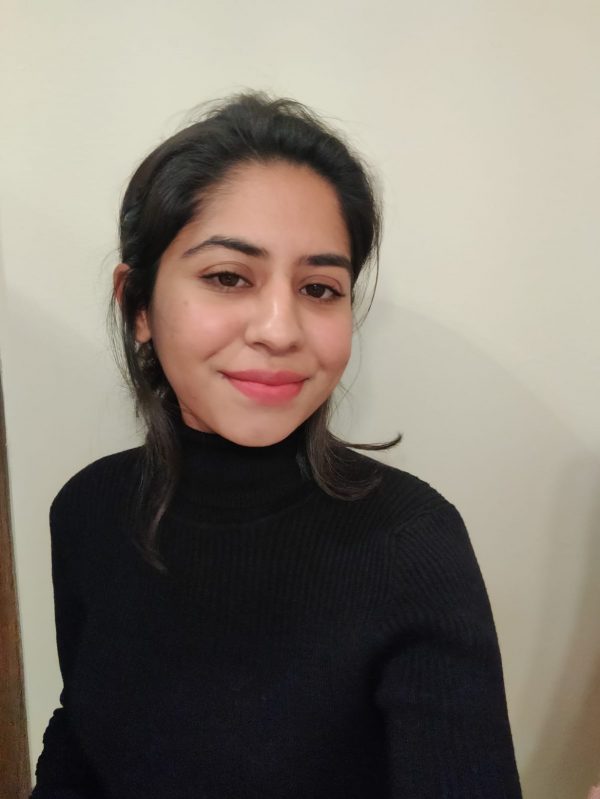Reflections on My Amplify Project: Teaching a Ghazal Workshop

By Maham Khan
When people hear “the ghazal in English”, they’re often perplexed. They can’t immediately imagine how the structure translates into English, or what the recurring refrain will look like. They also doubt it will be any good and assume it will sound clumsy. I think this is interesting since the ghazal has travelled across different languages for centuries, from Arabic to Persian to Urdu, to Spanish and Hebrew. I often have to show examples of the ghazal in English to people for them to realize that it is a fully-fledged form with much to offer.
Teaching the ghazal to primarily native English speakers put me in the interesting position of having to translate an incredible amount of historical and cultural context. It was daunting and made me wonder if such an export is even possible. There has been a fair amount of research and writing done about the ghazal, however, so I took my cues from poets like Agha Shahid Ali and Shadab Zeest Hashmi who had translated and produced many ghazals. My starting point was, how was I as a Pakistani introduced to the ghazal? The answer was: through song. This was how I decided to begin my own workshop: not so much through a chronological tracing of the form but focusing on how it is received by contemporary audiences.
Over the course of the weeks that I developed and taught the workshop, I had to find a fine balance between imparting information while leaving plenty of room for participants to find creative impetus. There was no way for me to fully anticipate what my class would look like, but I was glad to find that everyone in the (virtual) room shared my enthusiasm for the form and found much inspiration in all the discussions we had and the ghazals we read. Ghazals were written from the first class itself, and each time a participant shared a couplet, I felt like I had achieved exactly what I had set out to.
Another interesting aspect of the workshop was that at times, I would have a sense of defamiliarization about the poems and the culture which I had grown up with. While this experience isn’t necessarily new for me as someone who is from the global south, it still occasionally caught me off-guard. Certain things which seemed so obvious and ‘natural’ to me, like covert expressions of desire, were now being seen in a new light because of questions the participants asked. While I was trying to bring everyone into the fold of this grand tradition, I was simultaneously finding my own way around it in a way I hadn’t before.
Three weeks were nearly not enough to fully appreciate the ghazal as a form and play with it, but I doubt even a lifetime could be. I learned an incredible amount about how wonderful and tricky translations of poetry can be, but every class affirmed my belief that the ghazal in English has a rich tradition that we’re hopefully just beginning to unravel.
Bio
Maham Khan is a poet and Fulbright scholar currently pursuing a PhD in English literature at Kent State University. Her work has appeared in The Aleph Review, Jaggery Lit, Somewhere in Pakistan, Innisfree Poetry Journal, and Behenchara Magazine, among others. She is also the co-editor of The Missing Slate, a co-researcher on a participatory research project, Editing Women: Co-Investigating Autonomy and Sustainability in Pakistan’s Contemporary Literary Landscape (2022), as well as one of the founding members of the Pakistan Association for Women Publishers and Editors. She lives in Islamabad and Ohio.


